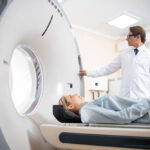
Explore the critical signs and symptoms of traumatic brain injury (TBI) to better identify and address this serious condition.

What is Traumatic Brain Injury?
Traumatic Brain Injury (TBI) refers to a sudden and severe injury to the brain caused by a blow or jolt to the head. It can occur as a result of various incidents, such as falls, car accidents, sports injuries, or assaults. TBI can lead to a wide range of physical, cognitive, and emotional impairments, depending on the severity of the injury and the specific areas of the brain affected.
TBI can be categorized into two types: closed-head injuries and penetrating-head injuries. Closed head injuries occur when the brain hits against the skull due to an external force. Penetrating head injuries, on the other hand, involve an object penetrating the skull and directly damaging the brain tissue.
It is important to understand the causes and mechanisms of TBI to fully grasp the potential symptoms and impacts it can have on individuals.
Early Signs and Immediate Symptoms of TBI
Recognizing the early signs and immediate symptoms of TBI is crucial for prompt medical intervention and better outcomes. Some common immediate symptoms include headache, confusion, dizziness, nausea or vomiting, blurred vision, fatigue, and difficulty speaking or understanding speech.
In addition, individuals with TBI may experience mood changes, such as irritability, anxiety, or depression. They may also have trouble with memory, concentration, or problem-solving abilities. It is important to note that symptoms can vary depending on the severity and location of the brain injury.
If you or someone you know experiences any of these symptoms after a head injury, it is essential to seek medical attention immediately.
Long-Term Effects and Chronic Symptoms
While some individuals may recover fully from TBI, others may experience long-term effects and chronic symptoms. These can significantly impact their daily lives and overall well-being. Common long-term effects include persistent headaches, difficulty with memory and concentration, sleep disturbances, sensitivity to light or noise, and changes in mood or behavior.
Chronic symptoms of TBI can also include seizures, balance problems, coordination difficulties, and cognitive impairments. It is important for individuals with TBI to work closely with healthcare professionals to manage these symptoms and develop coping strategies.
Understanding the potential long-term effects and chronic symptoms of TBI is crucial for providing appropriate support and care for individuals affected by this condition.
When to Seek Medical Attention for TBI
Seeking immediate medical attention for TBI is vital to ensure proper diagnosis and treatment. It is recommended to seek medical help if you or someone you know experiences any of the following after a head injury:
– Loss of consciousness, even if brief
– Severe or worsening headache
– Vomiting repeatedly
– Convulsions or seizures
– Weakness or numbness in the limbs
– Slurred speech
– Clear fluid draining from the nose or ears
– Pupils of different sizes
Remember, even if symptoms seem mild, it is important to get a professional evaluation to rule out any underlying brain injury and receive appropriate care.
Support and Recovery Strategies for TBI Patients
Support and recovery strategies play a crucial role in the rehabilitation process for TBI patients. It is important to establish a comprehensive treatment plan that addresses both the physical and emotional aspects of recovery.
Some strategies that can help TBI patients include:
– Physical therapy to improve motor skills and regain strength
– Occupational therapy to enhance daily living skills and promote independence
– Speech and language therapy to address communication difficulties
– Cognitive rehabilitation to improve memory, attention, and problem-solving abilities
– Psychological counseling to address emotional challenges and promote mental well-being
– Support groups or support networks to connect with others facing similar experiences
Additionally, a strong support system of family and friends can provide invaluable encouragement and assistance throughout the recovery journey.
By implementing these support and recovery strategies, TBI patients can maximize their potential for healing, regain independence, and improve their overall quality of life.




